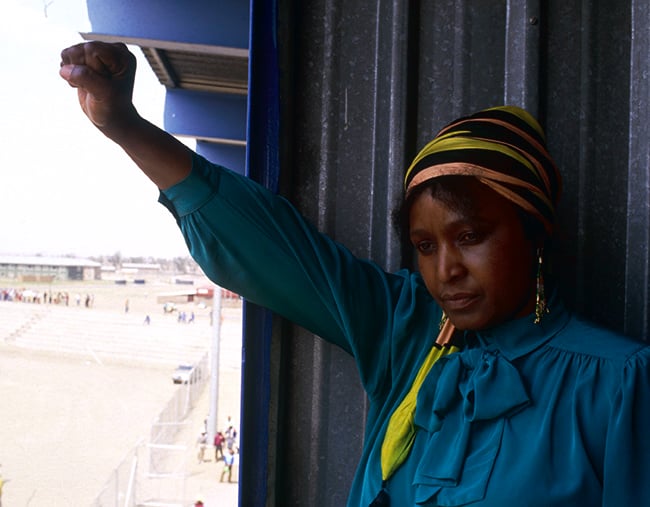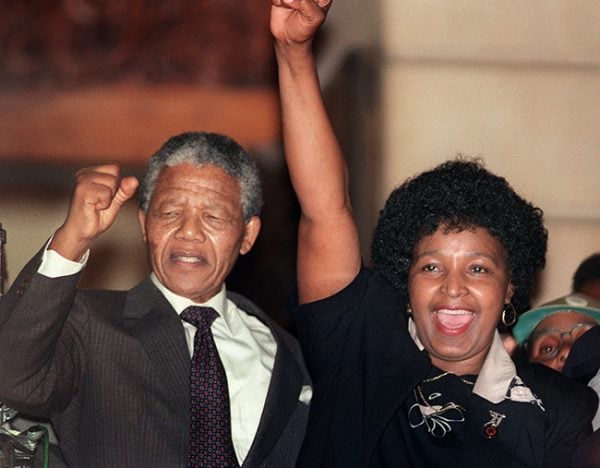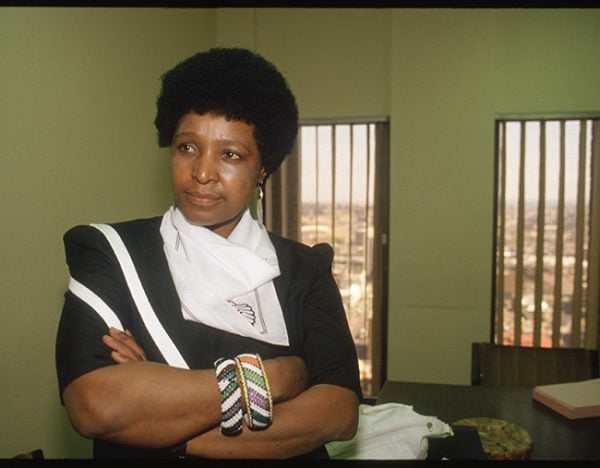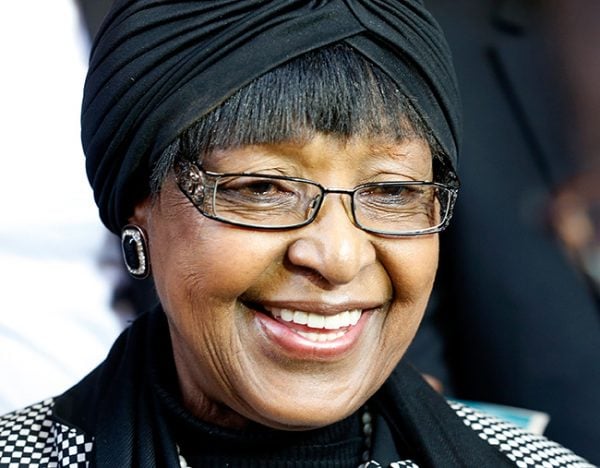
She was known in South Africa as the ‘Mother of the Nation’ .
She spent the majority of her life campaigning against apartheid – the violent white rule of the South African government between the 1940s and the 1990s that led to extreme segregation and discrimination against black South Africans. Her efforts did not go unpunished, and she was frequently incarcerated and banished during the fight for her people.
But her legacy is not without bruises. Her name is intertwined with atrocities such as murder, kidnapping and corruption. She was married to Nelson Mandela, an icon of South African liberation, but the public implosion of that marriage, too, left her reputation marred.
This is the complicated and powerful story of Winnie Madikizela-Mandela who died today, aged 81.
Winnie was born in 1936, the fourth of eight children to teacher parents. Her mother died when she was nine, and she and her siblings were scattered to live with different relatives.
Winnie worked to become Head Girl at her high school and went on to study social work at the The Jan H. Hofmeyr School in Johannesburg – the school opened in 1941 and was the first institution to train black social workers in South Africa.
“There is an anger that wakes up in you when you are a child,” she wrote in her 1984 autobiography, Part of my Soul Went With Him.
“It builds up and determines the political consciousness of the black man.”




Top Comments
The only people who will mourn her death will be white, left wing luvvies, Justin Trudeau included.
And the only people who'll be upset at the coverage of her passing will be white, right wing sad sacks. Swings and roundabouts eh.
Pretty much. Let’s all forget that she was a murderous thug.
There aren't too many black South Africans mourning her 'passing' (death) either, but it seems that the left have a penchant for mourning murderous thugs, Fidel Castro and Hugo Chavez spring to mind.